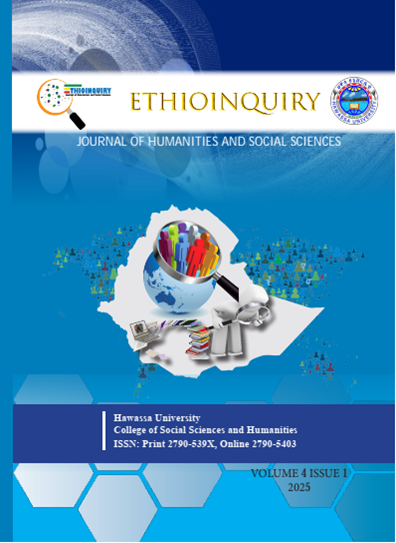Role of Structural Adjustments in Gender-Based Occupations for Promoting Economic Growth in Tanzania
DOI:
https://doi.org/10.20372/Ethioinquiry/20251377Keywords:
Economic growth, gender occupation, income inequality, GDP per capita, Gini coefficientAbstract
This study investigates how gender-based occupational structuring affects economic growth and income inequality in Tanzania, seeking to understand how women’s participation in different areas of work shapes GDP per capita and the Gini coefficient. A quantitative explanatory research design with secondary data from TDHS and NBS (2010, 2016, and 2022) was employed in the study. A sample size of 31 regions, and a multiple regression model was used. The study found that a larger number of women in agriculture has a significant negative impact on economic growth (β = −0.007, p < 0.01), whereas higher participation of women in sales and services (β = 0.032, p < 0.01) and in professional, scientific, and technical activities (β = 0.071, p < 0.01) made a positive contribution to GDP per capita. In contrast, women employed in manual work have a negative effect on economic growth (β = −0.019, p < 0.01). With regard to income inequality, the research revealed that it is significantly reduced by the increased share of women in professional, technical, or managerial positions (β = −0.021, p < 0.001). The inclusion of women in agriculture and sales/services, as well as those with manual skills, social security, and insurance, did not cause a significant impact on income inequality. According to this study, greater access to higher education among women contributes to greater economic growth and financial equality. This, therefore, calls for policy interventions that could reduce the division of labour, increase social security coverage, and consequently contribute to women’s economic empowerment through education and skills development for all-inclusive and sustainable growth and development in Tanzania.

